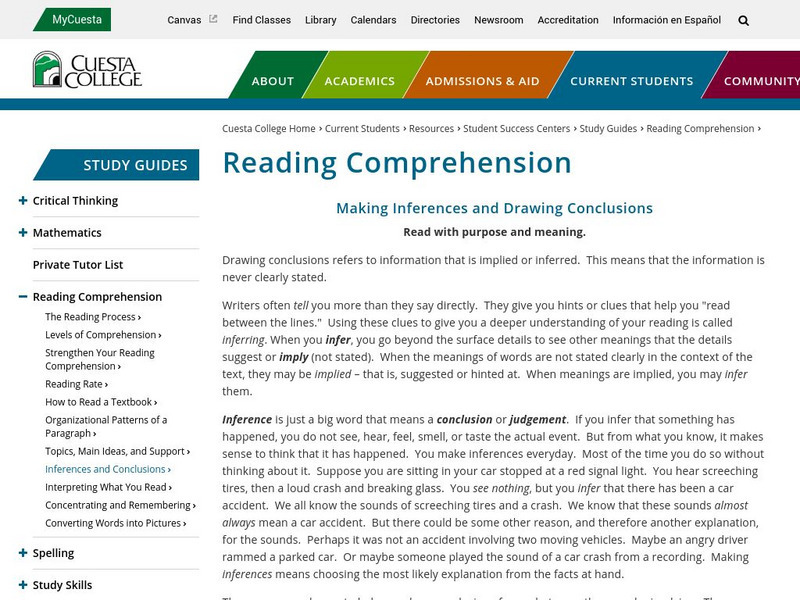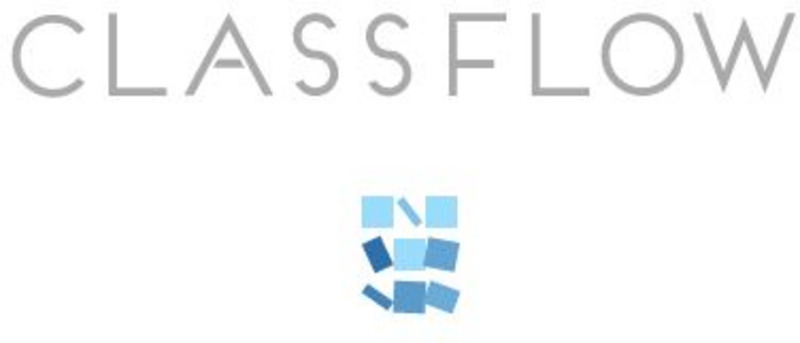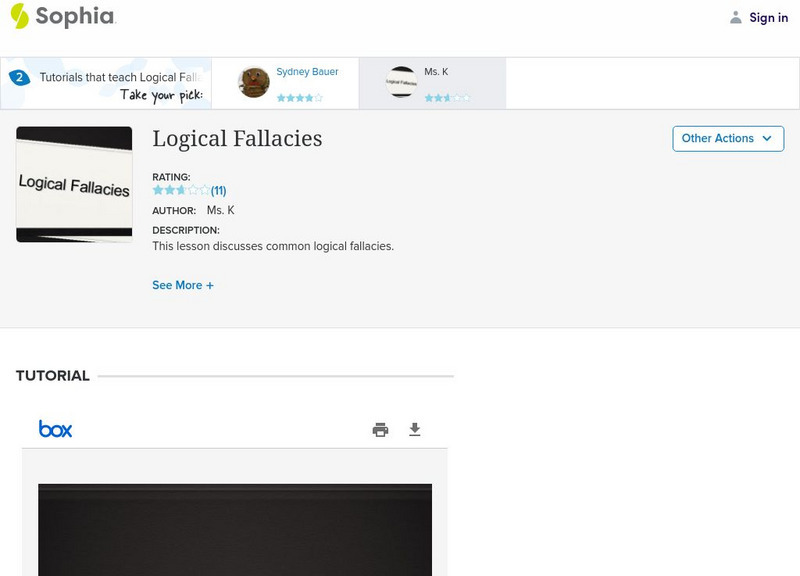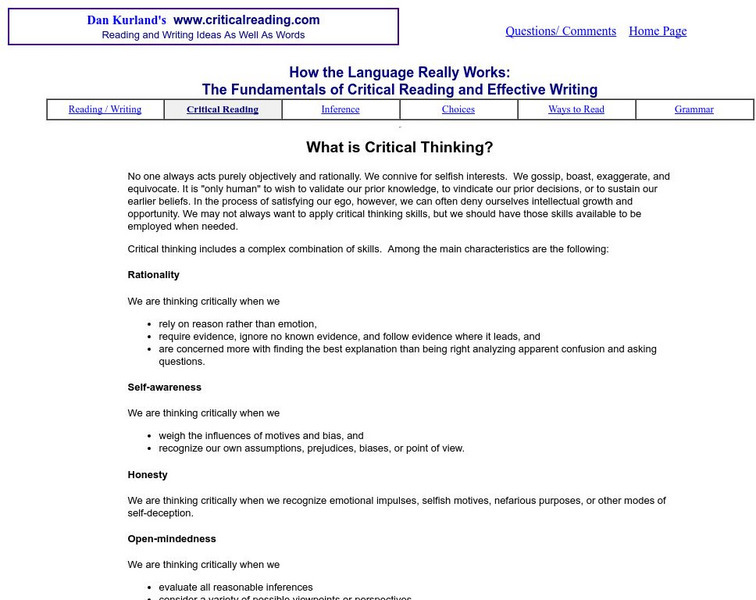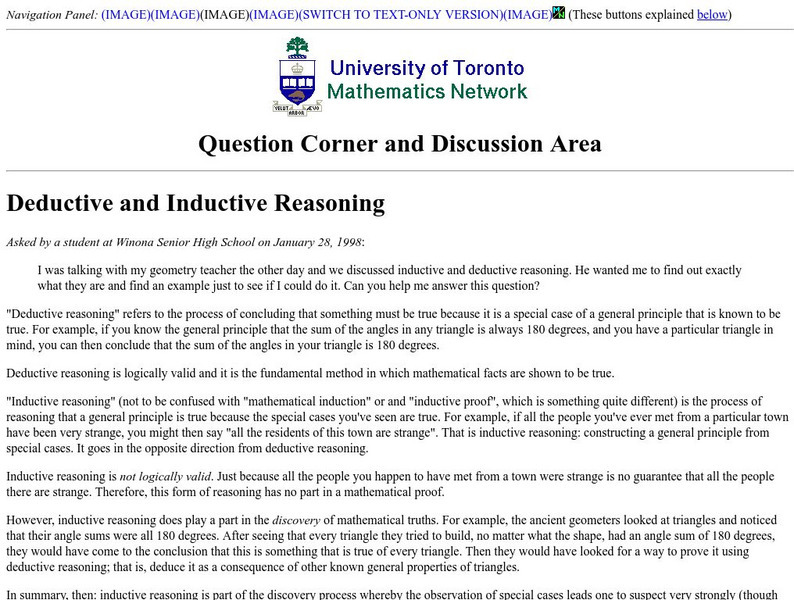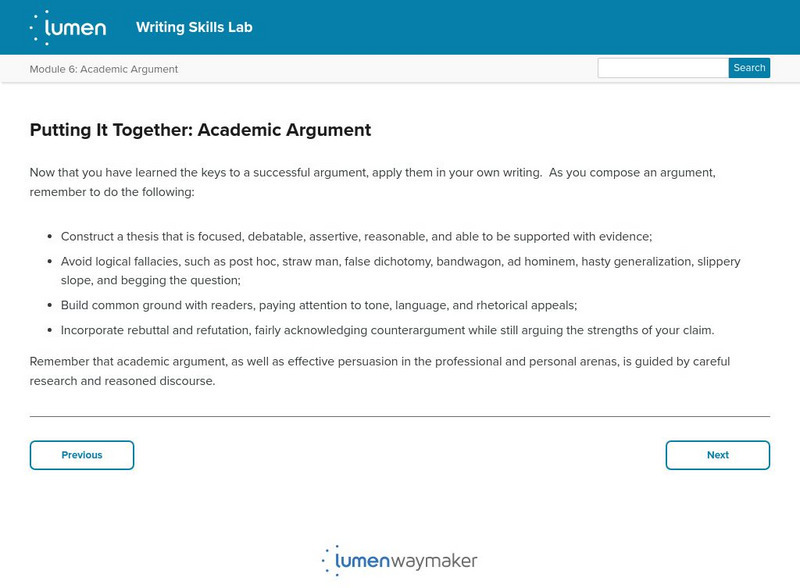Louisiana Department of Education
Louisiana Doe: Curriculum Hub: Ela Guidebooks: Teenage Brain
Ninth graders read National Geographic's "Teenage Brains" by David Dobbs and various informational texts about the development of the teenage brain to understand the factors that ultimately dictate teens' decision-making and behavior.
McGraw Hill
Read: Does Technology Make Us Lazy?
Compare these two passages for some interesting ideas about how technology affects our lives. The questions that follow ask you to identify the main idea from either direct statement or inference.
Other
Cuesta College: Reading Comprehension Guide: Inferences and Conclusions
Explanations and examples of inferences and conclusions in reading and in understanding context clues to define unknown vocabulary.
TES Global
Blendspace: Ethos, Logos, Pathos
A learning module with eight links to images, videos, charts, and assessments about ethos, logos, and pathos.
ClassFlow
Class Flow: Becoming an Effective Listener
[Free Registration/Login Required] This flipchart focuses on the traits of an effective listener and the identification of popular logical fallacies and propaganda techniques. In addition, there is an Activote at the end to check student...
ClassFlow
Class Flow: Fact and Opinion
[Free Registration/Login Required] Designed for grade 6, this flipchart covers the differences between fact and opinion. Students will analyze statements to determine if they are a fact or if they are an opinion.
ClassFlow
Class Flow: Fact or Opinion
[Free Registration/Login Required] This flipchart reviews the definitions of fact and opinion and gives the students opportunities to sort and identify fact and opinion statements.
Other
Critical Reading: How the Language Really Works: What's Critical Thinking?
Reading and writing are essentially thinking. This site examines the aspects of critical thinking, including rationality, self-awareness, honesty, open-mindedness, discipline, and judgment. RI.11-12.10a Text Complexity
University of Toronto (Canada)
Question Corner: Deductive and Inductive Reasoning
A simple discussion of the differences between inductive and deductive reasoning. Helpful to anyone who is having difficulty differentiating between the two.
Other
Thinking Skills in Education: Comparing Four Frameworks
An interesting article that discusses various types of thinking skills and why they are important in education.
Lumen Learning
Lumen: Academic Argument: Logical Fallacies
This introduction defines logical fallacies and lists reasons to avoid them. Click next at the bottom of each page for more information about fallacies.
Lumen Learning
Lumen: Writing Skills: Putting It Together: Academic Argument
This is a summary of the academic argument learning objectives including constructing a debatable thesis statement, avoiding logical fallacies, building common ground with readers, and incorporating rebuttal and refutation.
Other
Cuesta College: Interpreting What You Read
This site from Cuesta College provides both in-depth definitions of fact and opinion, and several clear examples of each.
Khan Academy
Khan Academy: Match a Flaw Quick Guide
A Matching Flaw question type is asking you to find a choice containing an argument that exhibits the same flaws as the passage's argument. It's important to focus on the flaws, and not get distracted by the content of the arguments in...




